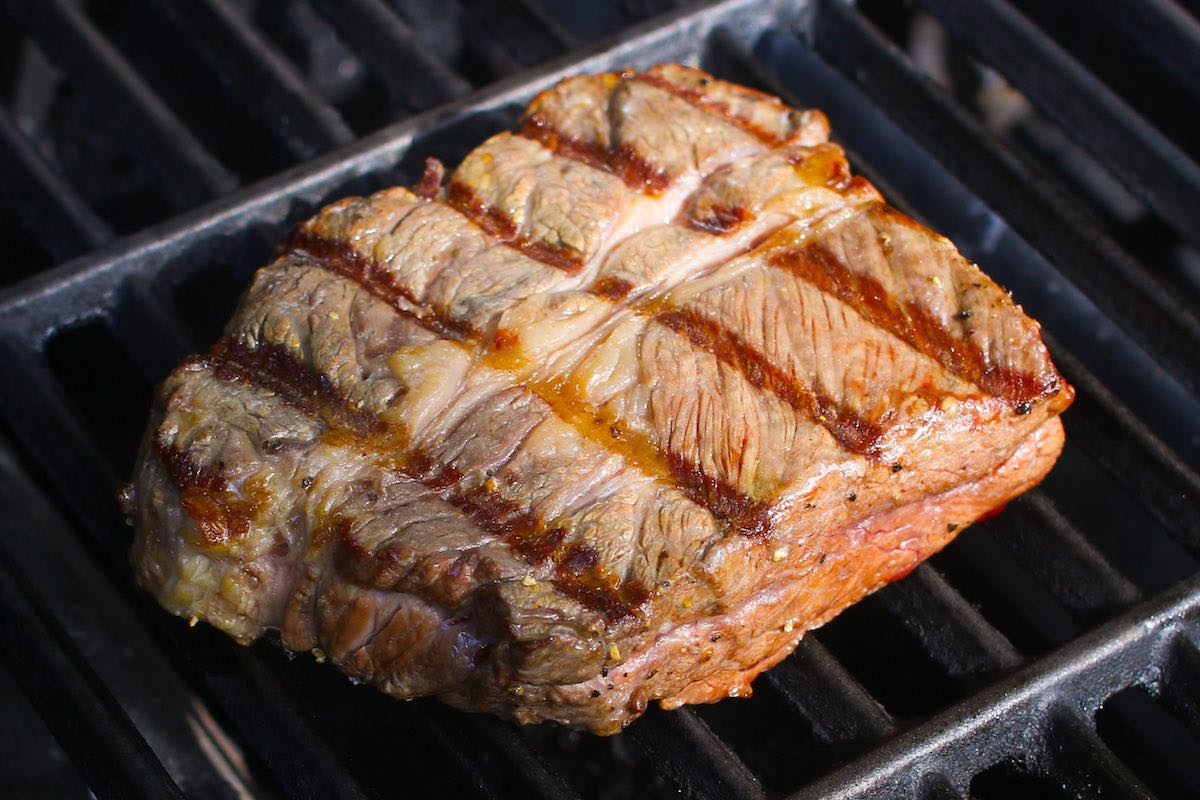In the realm of steak enthusiasts, the chuck eye holds a special place, offering a blend of tenderness and beefy flavor. While grilling is often the preferred method for cooking this cut, pan-searing presents a unique opportunity to amplify its delectable qualities.

Image: tipbuzz.com
Embracing the Searing Technique
Pan-searing involves cooking the steak in a hot pan with minimal oil, allowing it to develop a flavorful crust while retaining its juicy interior. The key lies in the Maillard reaction, a chemical process that transforms the sugars and amino acids on the steak’s surface into savory and complex flavor compounds.
To achieve the perfect sear, ensure your pan is screaming hot before adding the steak. A cast-iron skillet, with its ability to retain heat evenly, is an ideal choice. Once the steak hits the pan, resist the urge to fidget with it. Allow it to sear undisturbed for several minutes, developing a deep golden-brown crust.
Pan-Searing the Chuck Eye Steak: A Step-by-Step Guide
Ingredients:
- 1 chuck eye steak (about 1 pound)
- Salt and black pepper, to taste
- 1 tablespoon olive oil
Instructions:
- Season the steak generously with salt and pepper on both sides.
- Heat the olive oil in a heavy-bottomed skillet or cast-iron pan over high heat.
- Add the steak to the pan and cook for 3-4 minutes per side, or until a golden-brown crust has formed.
- Reduce heat to medium and continue cooking for an additional 5-7 minutes per side for a medium-rare steak. Adjust the cooking time as desired for different levels of doneness.
- Remove the steak from the pan and rest it for 5-10 minutes before slicing and serving.
Expert Tips for Enhancing the Experience
Mastering the Sear:
– Use a heavy-bottomed skillet or cast-iron pan to evenly distribute heat and prevent hot spots.
– Allow the pan to get screaming hot before adding the steak, ensuring a rapid sear and flavorful crust.
Searing Techniques:
– For a more intense sear, use a flavorful fat such as butter, lard, or bacon grease instead of olive oil.
– If your steak starts to smoke excessively, reduce the heat slightly or move it to a cooler part of the pan.

Image: www.derrickriches.com
Frequently Asked Questions
Q: Should I trim the chuck eye steak before cooking?
A: Yes, it is recommended to trim any excess fat or gristle from the steak to enhance the cooking process and flavor.
Q: How can I tell when my chuck eye steak is done?
A: The preferred method for checking doneness is by using a digital meat thermometer. Cook the steak to your desired internal temperature for the level of doneness you seek.
Q: What is the best way to rest the steak?
A: Once the steak is removed from the pan, allow it to rest uncovered on a wire rack or cutting board. This allows the juices to redistribute throughout the steak, resulting in a tender and juicy end result.
How To Cook Chuck Eye Steak In Pan
Indulge in Culinary Bliss
Whether you’re an experienced cook or just starting your culinary journey, pan-searing a chuck eye steak is a rewarding and delicious endeavor. By following these steps and incorporating the expert tips provided, you can transform this affordable cut into a steakhouse-quality dish that will satisfy your taste buds and elevate your dinner table experience.
Now that you’ve discovered the art of pan-searing a chuck eye steak, are you ready to embark on this culinary adventure and indulge in its delectable flavors?